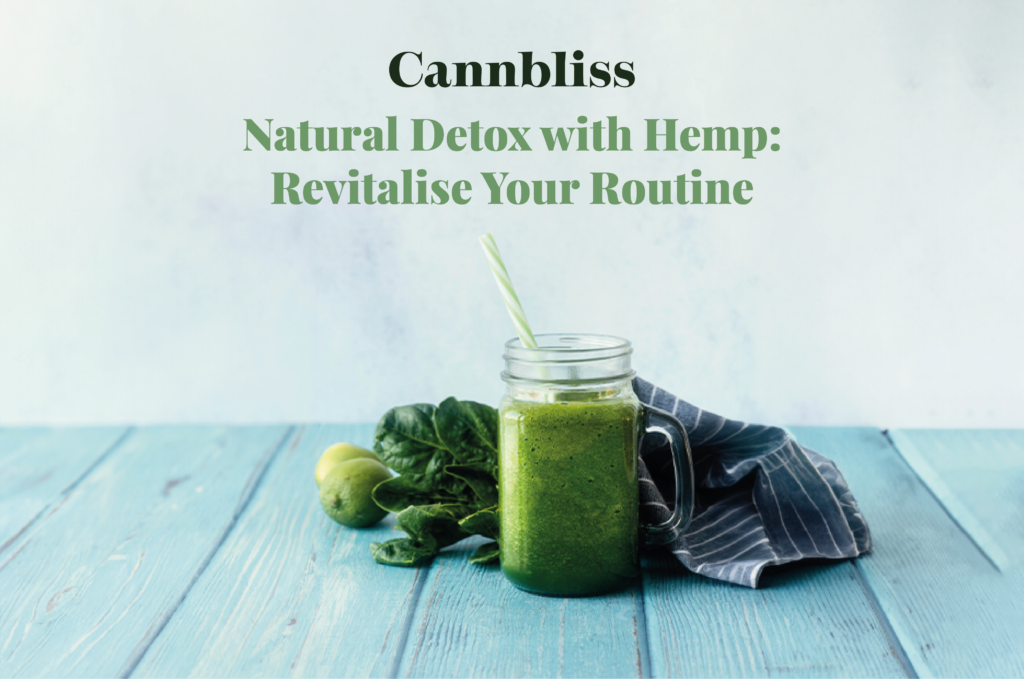Summer is a vibrant season, full of sunshine, heat and outdoor activities. During this time, we often prefer lighter, more refreshing meals to accompany the high temperatures. However, it is essential to maintain a healthy diet to ensure our health and well-being, providing energy and freshness to enjoy the season to the full.

The importance of hydration
Hydration is crucial during the summer months. As the temperature rises, our bodies lose more water through sweat and it’s essential to replenish this loss to avoid dehydration. Water is the best choice, but we can vary it with natural juices, iced teas and flavoured waters. Avoid sugary and alcoholic drinks as these can contribute to dehydration.
Water plays a vital role in countless bodily functions, from temperature regulation to the elimination of toxins. Staying well hydrated improves digestion, cognitive function and skin health. It also helps prevent fatigue and improves physical performance.
Tip: Prepare a jug of water flavoured with lemon slices, mint leaves and cucumber slices. It’s a tasty and refreshing way to stay hydrated.

The benefits of seasonal fruit
Summer is rich in delicious, moisturising fruits. Watermelon, cantaloupe, pineapple, strawberries, peaches and grapes are examples of fruits that help keep the body hydrated and provide essential vitamins and minerals. Fruit is also rich in antioxidants, which help protect the skin from sun damage.
Seasonal fruits are fresh and nutritious, providing a healthy alternative to processed snacks. In addition, their high water content helps maintain hydration and satiety, important aspects of a healthy diet.
Tip: Prepare fruit salads or smoothies for breakfast or an afternoon snack. They are nutritious, refreshing and easy to prepare.
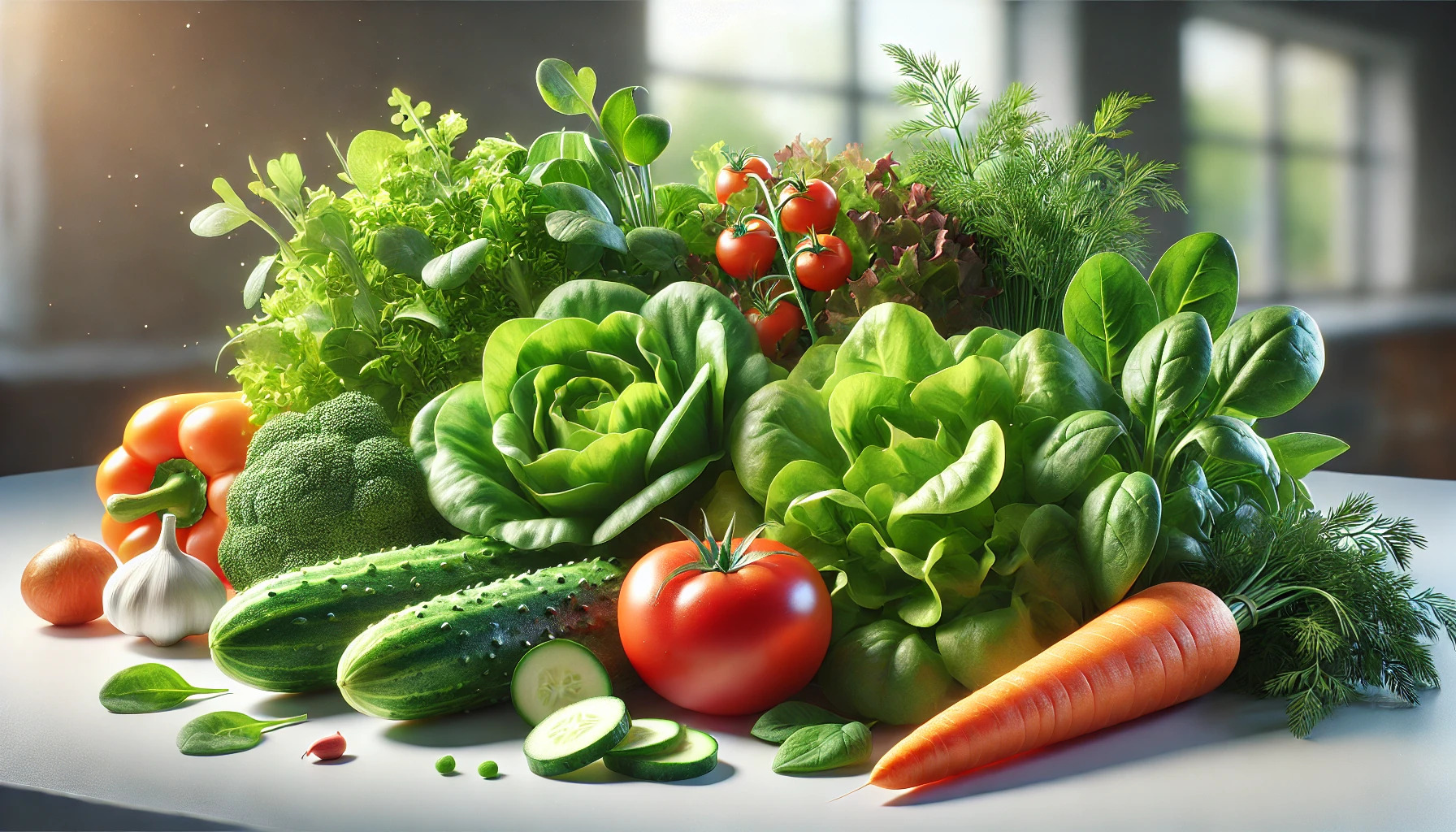
Fresh vegetables: A necessity
Fresh vegetables are rich in fibre, vitamins and minerals, as well as being low in calories. They help maintain satiety and digestive health. Lettuce, rocket, spinach, cucumber, tomatoes and carrots are great options to include in your meals.
Vegetables are essential for a healthy diet, providing important nutrients that support immune function and general health. The fibre present in vegetables also helps regulate intestinal transit and maintain satiety.
Tip: Make colourful and varied salads, adding different types of leaves, raw and grilled vegetables. Use light dressings such as olive oil, lemon and fresh herbs.
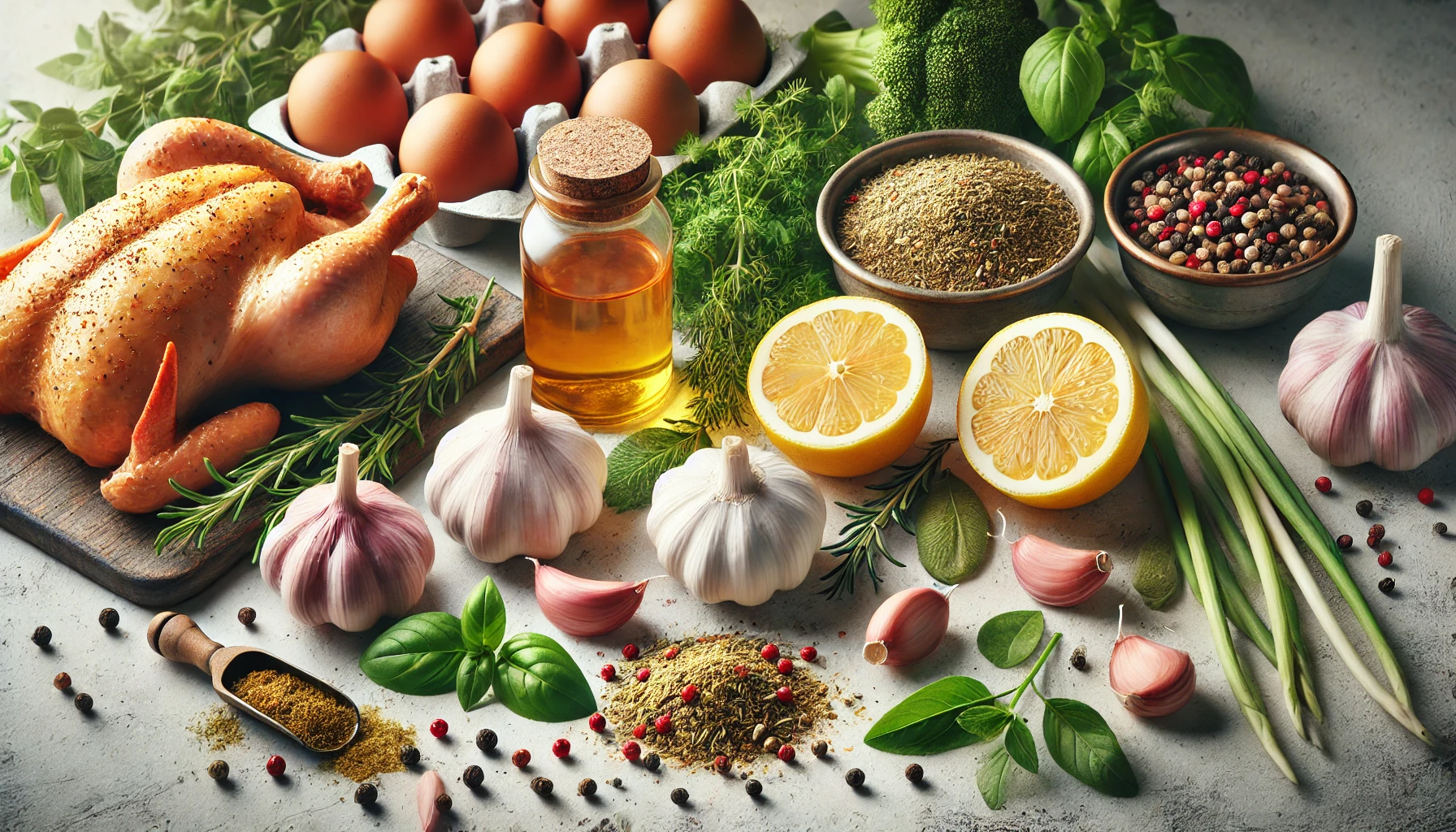
Lean proteins for a healthy, light diet
In summer, it’s common to favour lighter meals. Opt for lean protein sources such as chicken, fish, eggs, tofu and pulses. They are easier to digest and help keep you feeling light.
Proteins are essential for repairing and building muscle, as well as playing a crucial role in the production of enzymes and hormones. Choosing lean proteins helps maintain a healthy diet without adding unnecessary calories or fat.
Tip: Grill or bake proteins to avoid excess fat. Try natural seasonings such as garlic, lemon, herbs and spices to add flavour to your meals.
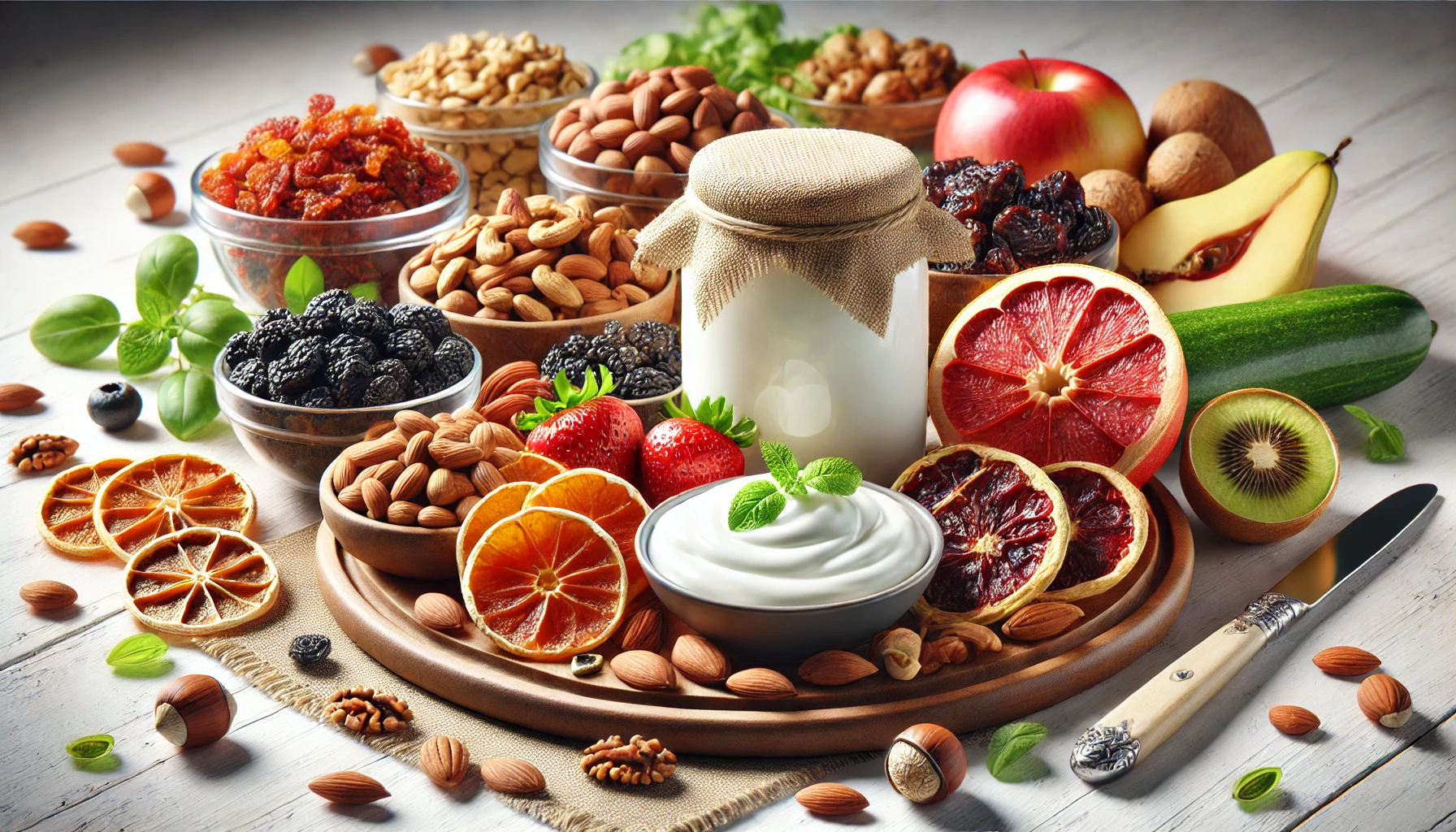
Processed foods: Avoid them
Processed foods are generally high in sodium, sugar and saturated fats, which are not ideal for a healthy diet. Favour natural and fresh foods, which are more nutritious and beneficial for your health.
The consumption of processed foods is associated with various health problems, including obesity, heart disease and diabetes. Reducing your intake of these foods can significantly improve your overall health and well-being.
Tip: Replace processed snacks with healthier options such as dried fruit, nuts, natural yoghurt and cut-up vegetables.

Reducing salt and sugar
Excessive consumption of salt and sugar can lead to various health problems, such as hypertension and diabetes. In summer, try to reduce the amount of salt in your meals and avoid consuming foods that are too sugary.
Keeping salt and sugar consumption within recommended limits helps prevent health problems in the long term. In addition, a diet low in salt and sugar can contribute to maintaining a healthy weight, making it one of the pillars of a healthy diet.
Tip: Use herbs and spices to season food instead of salt. To sweeten drinks and desserts, prefer natural sweeteners such as honey or stevia.
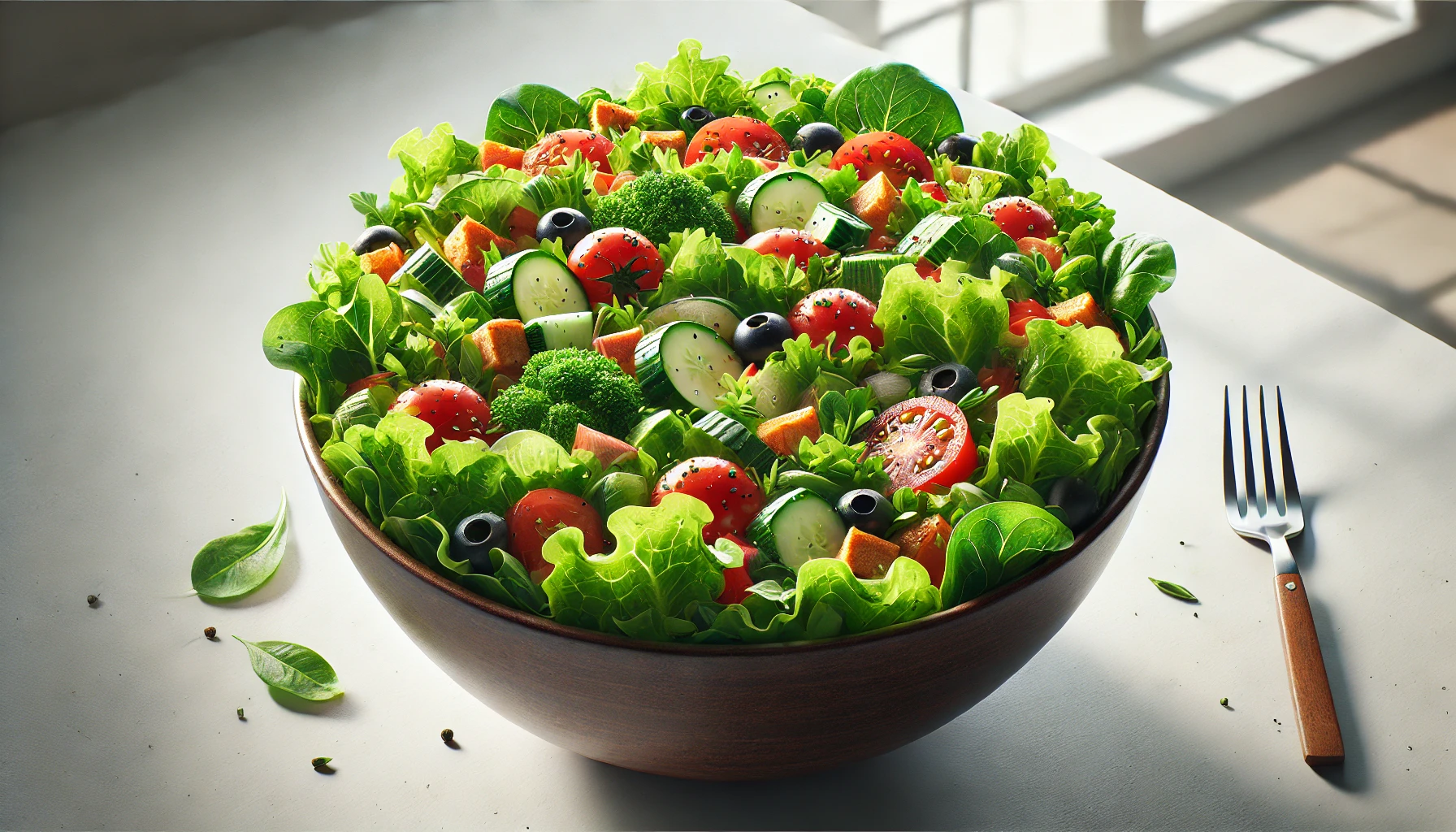
Light and frequent meals
Eating small portions throughout the day helps keep the metabolism active and prevents the feeling of tiredness and heaviness. Favour light, nutritious meals at regular intervals.
Small, frequent meals help keep energy levels stable contributing to healthy eating and avoiding hunger spikes that can lead to less healthy food choices.
Tip: Plan five to six small meals a day, including breakfast, snacks, lunch and dinner. This will help keep energy levels stable throughout the day.
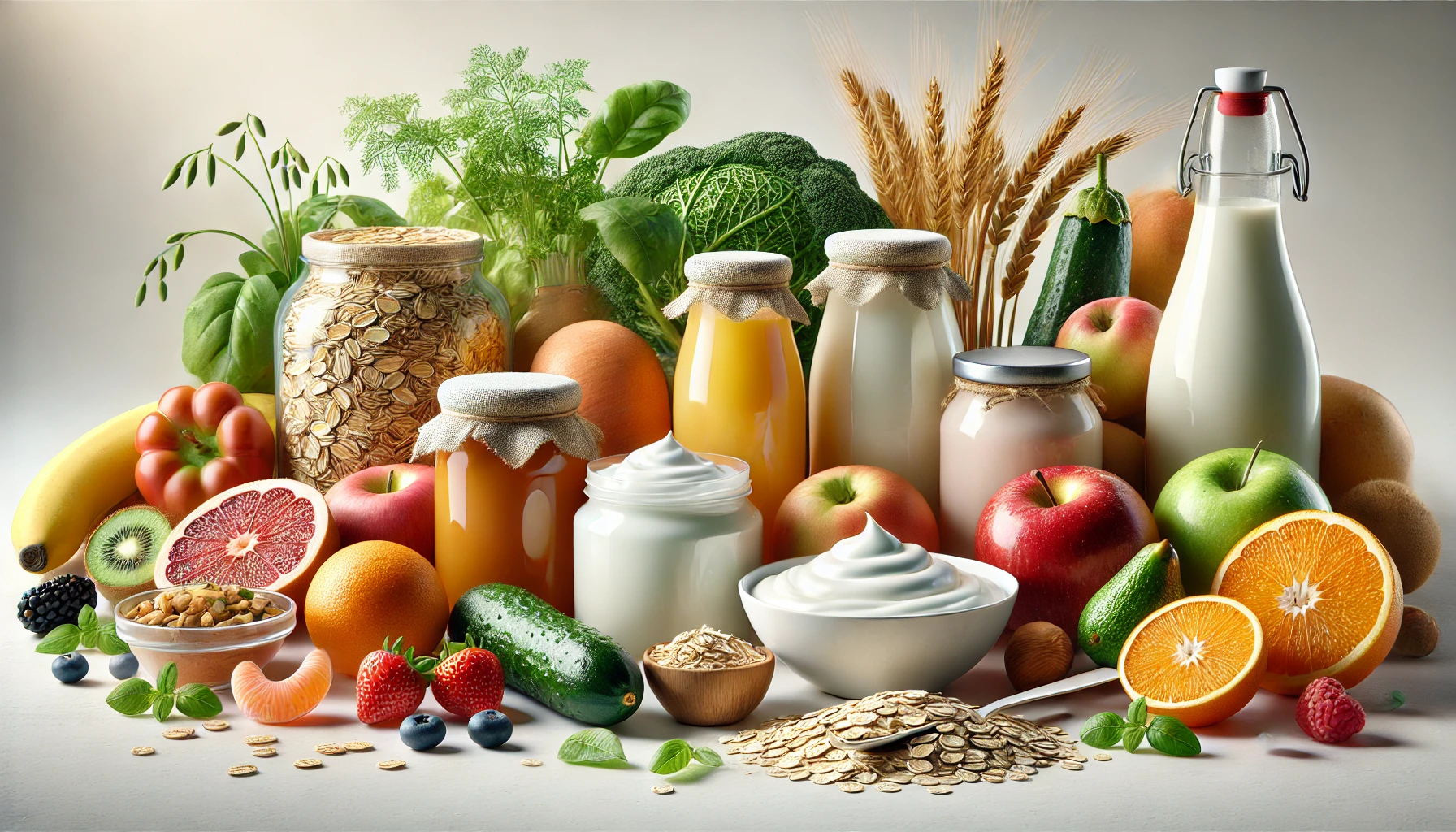
Intestinal health: Looking after it from the inside out
A diet rich in fibre, probiotics and prebiotics is essential for maintaining intestinal health. Yoghurt, kefir, kombucha, oats, fruit and vegetables are great sources of these nutrients.
Intestinal health plays a crucial role in digestion and the absorption of nutrients, as well as influencing the immune system and general well-being. Maintaining a healthy gut can prevent digestive problems and improve overall health.
Tip: Include natural yoghurt with fruit and oats for breakfast. As well as being a delicious option, it will help regulate intestinal transit and improve digestion.

Cooking at home: control and quality
Cooking at home gives you greater control over the ingredients and the way you prepare your meals. This helps you avoid consuming the additives and preservatives found in many industrialised foods.
Preparing meals at home is an excellent way to ensure that your diet is nutritious and balanced. What’s more, cooking can be a relaxing and rewarding activity and contribute to healthy eating.
Tip: Make weekly meal plans and prepare lunchboxes with fresh, healthy food to take to work or on outings.

Natural supplements: Hemp oil
To complement a healthy diet, consider using natural supplements such as hemp oil. This supplement is rich in essential fatty acids, vitamins and minerals that can help maintain general health and well-being, and integrates perfectly into a healthy diet.
Benefits of hemp oil
Hemp oil is an excellent source of omega-3 and omega-6, which are essential for cardiovascular and brain health. It also has anti-inflammatory properties that can benefit skin and joint health. These essential fatty acids help reduce cholesterol, improve blood circulation and strengthen the immune system.
Hemp oil is also rich in vitamins A and E, which are powerful antioxidants, helping to protect cells. These vitamins are important for skin health, especially in summer when exposure to the sun can cause cell damage.
How to incorporate hemp oil into your diet
Incorporating hemp oil into your diet is simple. You can add it to salads, smoothies, soups and even use it as a substitute for olive oil in some recipes. Its versatility makes it easy to integrate into your daily meals, providing a nutritional boost without significantly altering the flavour of the dishes.
Small changes can make a big difference
Maintaining a healthy diet in summer is essential to ensure energy, energy and well-being during this season. Take advantage of the season’s fresh fruit and vegetables, hydrate properly and make conscious choices. Small changes to your diet can make a big difference to your health and quality of life.
Also remember to exercise regularly and protect your skin from the sun. Summer is a great opportunity to adopt healthy habits and enjoy everything the season has to offer.
If you want to incorporate all the benefits of hemp oil into your diet, try Cannbliss Hemp Oil. Rich in essential nutrients, it’s the perfect addition to a healthy and balanced diet. Enjoy the summer with more health and well-being!



